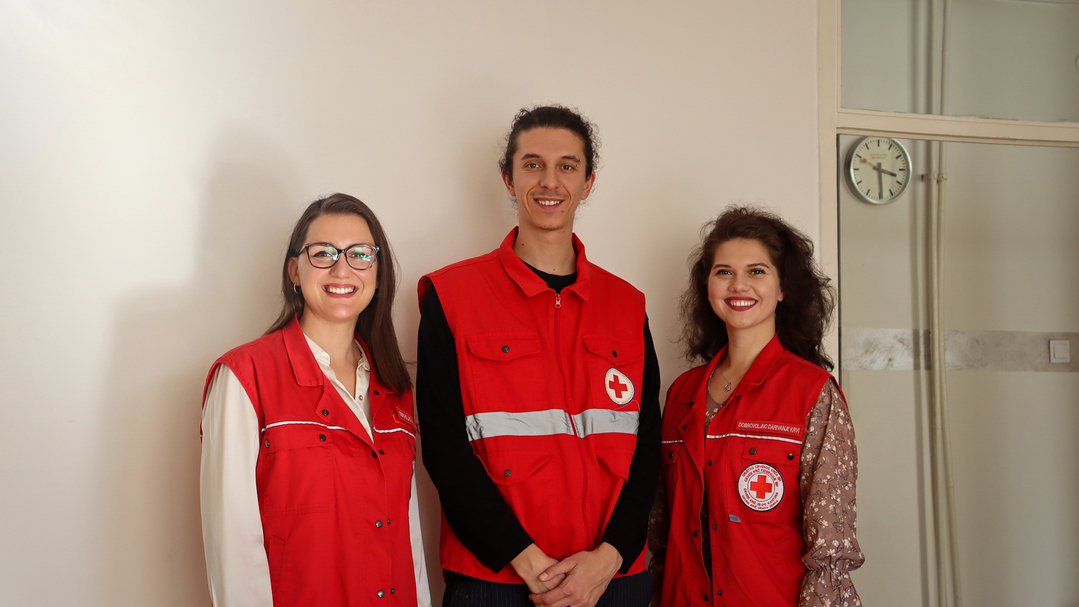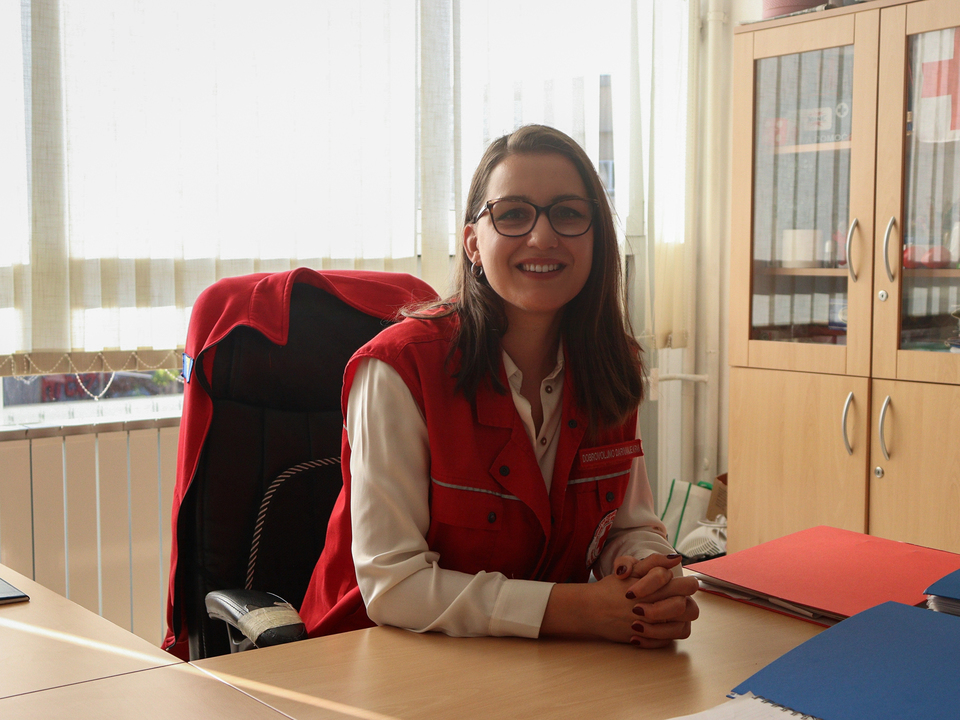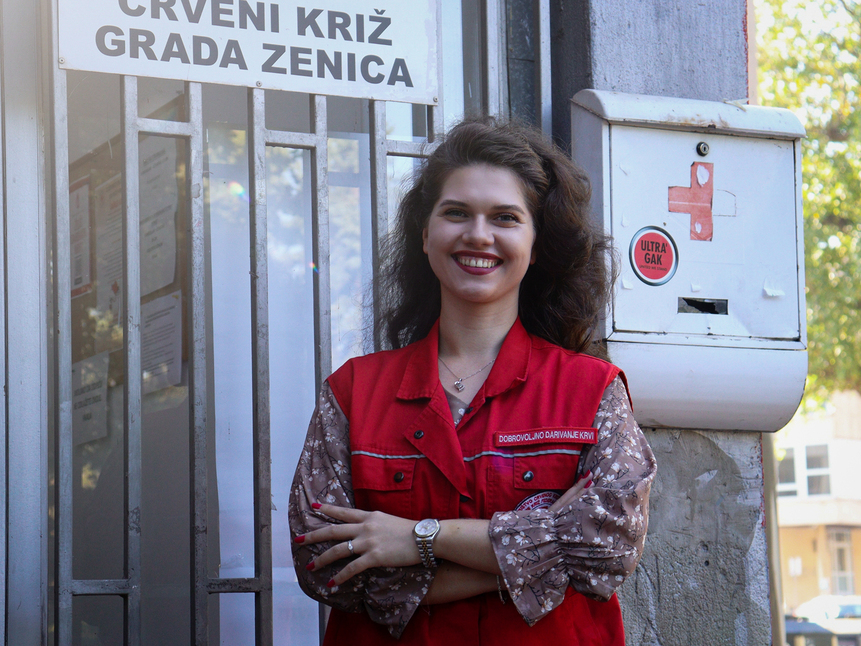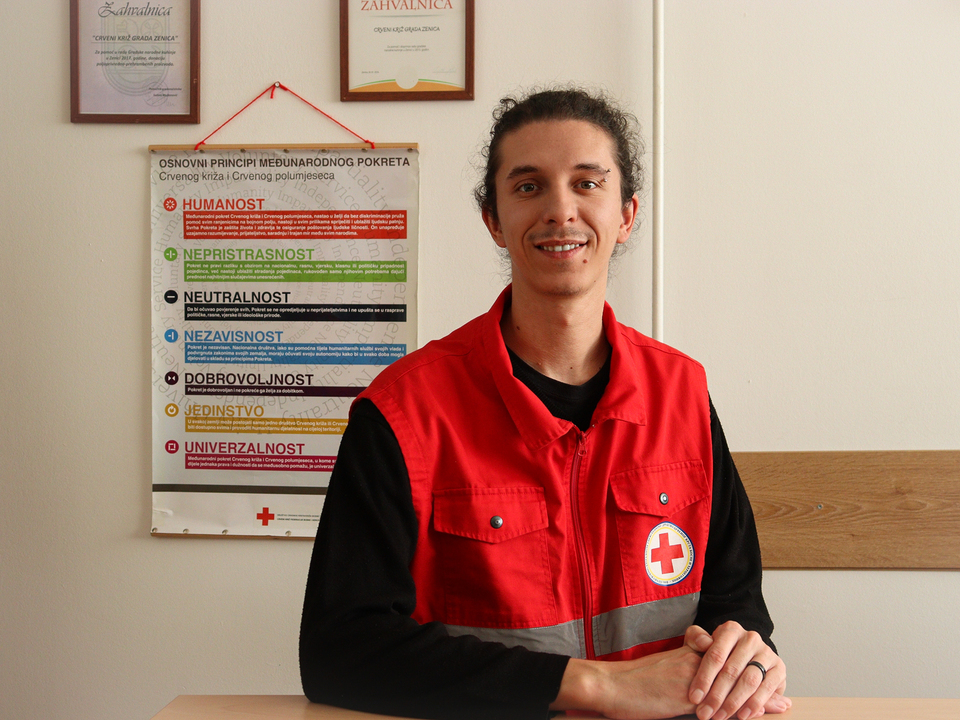
Although blood donation plays a key role in saving human lives, the number of voluntary blood donors, as reported by the Zenica Red Cross, has been declining in recent years.
There are many reasons for this, including the increasing exodus of young people from Bosnia and Herzegovina (BiH) as well as the systemic failure to meet basic medical standards. However, blood donors continue to embody the spirit of donation, and for some, it is a family tradition.
Blood donation drives are frequently organized by the Red Cross, which engages citizens, while transfusion centers carry out the donations and distribute the blood.
In the last 15 years, the Zenica Red Cross has organized more than 180 blood donation campaigns. The amount of blood donated has varied over the years, and Zenica Red Cross Secretary Mirela Hodžić says that the number of blood donors is currently on the decline.
“The number of blood units donated has fluctuated over the years, with the largest amount, close to 800 units, received in 2015/2016. Unfortunately, last year we had about half that amount. Our annual goal is 350 units, which is a drop in the ocean, to put it simply,” said Hodžić. She explained that their annual plan states how many units of blood they intend to collect and distribute during the year’s monthly campaigns.
The decrease in blood donors should be distinguished from the reasons why citizens opt not to donate blood. Among the main factors in the declining trend, Hodžić lists the youth exodus from BiH, the age limit of 65 for donating blood, and the insufficient health of some who come to the campaign. For example, she says that out of 50 twenty-year-olds who might apply to donate, half cannot due to current health conditions, such as low blood pressure or being underweight.

“The Red Cross is alone in this activity and struggle, and their ultimate goal is for blood to wait for the patient, not the patient for blood,” Hodžić pointed out.
Fifteen Blood Donations in Nine Years
The first predecessor of the Red Cross in BiH was the Bosnian-Herzegovinian Society for Aid and Sanitary Care in War and in the Event of Peacetime General Disaster. This organization was established in Tuzla during the 1912-1913 and had the same goals as the Red Cross today.
The Zenica Red Cross has been operating since the 1940s, when a coalition of ironworkers formed an organization to help those in need. Such initiatives have always been based on the principles of cost-free volunteerism, solidarity, and anonymity.
Blood donors must be between 18 and 65 years of age, weigh over 50 kilograms, and be in good overall health.
Ajša Luković, a Zenica Red Cross volunteer, has been an active blood donor for many years. “For me, it was like voting first, and then donating blood,” said Luković, who has donated blood 15 times in nine years.
She was not yet 18 when she became part of the Red Cross story and has been a volunteer promoting blood donation ever since. “When you convince yourself that no one else can give you blood except another person, you don’t need a stronger ideal and motivation than that,” said Luković. She added that we all rely on those who donate blood because you can’t just walk up to the counter and buy some B-, or any other blood type.
Donating blood, according to Luković, is a privilege as it means you are 100% healthy.

Idriz Heljić has also been a blood donor for many years, following in the footsteps of his parents, who taught him about the Red Cross and blood donation. This family tradition started in 1945, when his grandfather moved to Zenica and started volunteering with the Red Cross.
“My dad grew up with his grandfather and learned from him, and that’s how he started volunteering. I’m not sure how long my dad has been doing this, but for as long as I can remember, there has always been a talk of the Red Cross in my family, how it helps citizens, and how dad and mom go to donate blood,” said Heljić, adding that his sister, following his example, started volunteering at the Zenica Red Cross.

As his motivation for donating blood, he emphasizes that one donation can save three lives. He knows that by donating, he is doing a good deed and providing someone with needed medical assistance.
Connecting Locally and Globally
The Zenica Red Cross is part of the Red Cross of Bosnia and Herzegovina, but it operates autonomously, maintaining its neutrality. Its activities, as well as the activities of other Red Cross associations in other cities, contribute to connecting the local and regional levels, which was demonstrated during the natural disasters that hit BiH this year.
“As for connecting local communities, it is absolute. The floods that hit some parts of Bosnia and Herzegovina are examples of this, where we were constantly in touch with our colleagues and went into the field in Konjic, Kiseljak, and elsewhere. We are part of a common structure in which we cooperate, work, and help each other,” Hodžić explained, emphasizing that helpfulness is a characteristic of the people of BiH and all humanitarian aid was collected thanks to BiH citizens.
Luković highlighted the common mission of all Red Cross associations, both local and international. He notes that, in addition to the assistance the Red Cross provided to BiH, they also provided assistance to Hatay, Turkey, during and after the earthquake. “It is important to mention this global connection, like the cooperation with the Turkish Red Crescent.”
One of the Zenica Red Cross’s main partnerships is with the Zenica Cantonal Hospital Transfusion Center. Hodžić clarified that without this collaboration, it would be impossible to carry out donation campaigns. “We animate and organize the drives, but the Transfusion Center is the one that implements them and distributes the donated blood. This cooperation is very important and necessary for our program,” said Hodžić.
She urges citizens to become members of the Red Cross, because the annual membership fee of four marks helps sustain its work and goes towards blood donation campaigns.






